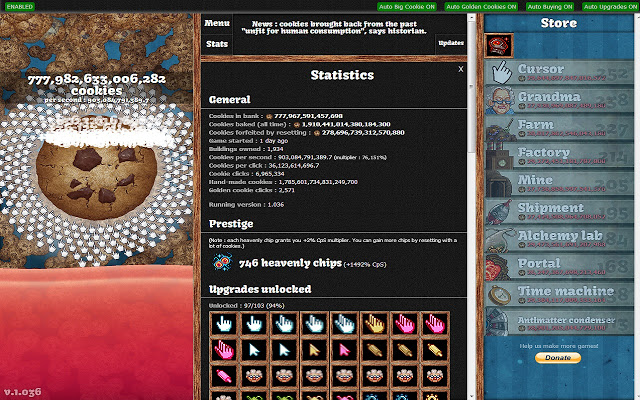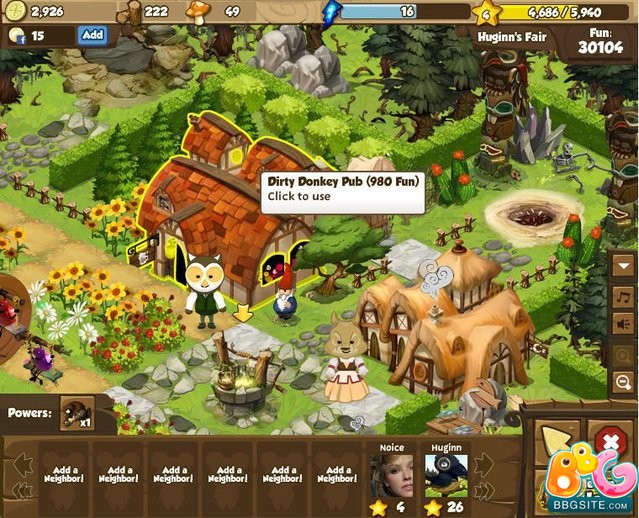Click.
Click click.
Click click click click click click click click click click click click.
One of our company mailing lists brought attention to Particle Clicker, a game that, as the title suggests, is about both particles and clicks. While its goals were around particle physics education, the game itself isn’t that well balanced. But, it did remind me of the genius game design distilled by this type of game, which got me all interested in them again and compelled me to spend a week playing through some of its best work.
Informally known as “incremental games“1, these types of games revolve around the idea of progress and an exponential measurement of that progress, with everything the player does feeding back into that progression loop. As far as I can tell, Cookie Clicker was the first game that scratched this niche, and there are now a bunch of themed clones; the one I like most is a well-produced game called The Monolith.
The genius of Cookie Clicker is that it distills a gameplay loop down to its bare essentials. It looks something like:
- Do action
- Get rewarded for action
- Spend reward for better actions
- Repeat
The reward mechanism is simple, but tremendously powerful and addictive. It forms the basis behind the entire action RPG genre (moar loot!) as well as some of the magic behind Civilization’s “one more turn” phenomenon: as long as the rewards keep on going up, the player continues to stay interested and hanging on to get to that next level.
For incremental games, the mechanism that gets the whole thing started is the simplest possible action, the mouse click. Clicks generate currency, which is used to purchase items whose sole purpose is to generate more currency, automatically over time. Those items enable more expensive, bigger items, which in-turn generate more currency. The numbers (and it’s always numerical, for ease of implementation but also because that’s what players understand without any tutorials) always get bigger, and eventually they rocket into absurd sizes that carry the joke to its logical conclusion. Sprinkled onto this base formula are achievements2, RPG-style levels, humorous flavor text, and some truly bizarre Easter eggs.
It’s worth noting that while the idea is simple, getting the execution right is more nuanced. Not every Action RPG succeeds, and not every incremental game is great; there’s a balance in how much reward to dole out in relation to the difficulty/tedium of the action, and what that reward curve looks over the expected lifetime of a gaming session. Giving rewards too quickly robs them of impact, but setting milestones too far from each other risks boring the player before they ever get to the good stuff.
Cookie cutter—and every clone hence—solves this by taking advantage of the human psychology of very large numbers. In short, people cannot intuitively understand big numbers, and at some point the values become abstract3, especially as things approach millions and billions and beyond. We’re even worse at reasoning and understanding exponential growth4, and I suspect that lack of intuition underlies what makes looking at the number counters in Cookie Clicker so exciting.
And that’s it, really. The gameplay reward loop, in a deceptively basic but powerful, pure form.
Click.
Although, I end up calling them “clicker” games. It seems an apt label and is simultaneously dismissive and descriptive.↩
Achievements are other addictive gaming trope, although nowadays the fervor around them has subsided.↩
And abusing abstract numbers is one major way to trick people to not think about their real-world ramifications, like how credit card companies insist on using points to measure rewards over actual dollar amounts.↩
At least, this is the argument put forth by venture capitalists to justify rocketship valuations.↩



